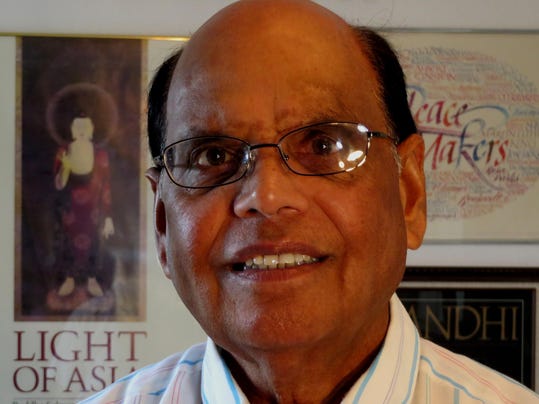 Pritam K. Rohila, Ph.D.
Pritam K. Rohila, Ph.D.
The concept that human beings have certain rights has existed throughout history. People’s rights were described in India’s Vedas, Babylon’s Code of Hammurabi, China’s Analects of Confucius, and even in later religious texts like the Bible and the Quran. But, in most cases, rights were limited only to in-groups. Abuses against the outsiders were not uncommon.
Colonial powers throughout the world continued the trend when attempting to expand their empires and to exploit the wealth of their colonies.
For example, in Haiti, before its independence in 1804, in just 13 years, European colonizers worked over one million Arawaks to death, as slaves compelled to mine gold.
Between 1830 and 1838, U.S. officials forced nearly 100,000 Native Americans out of their homeland. About 4,000 Native Americans died of cold, hunger and disease, during their involuntary march, along what is known as the Trail of Tears.
In 1904, Germans colonial authorities forced tens of thousands of Herero into the Kalahari Desert, poisoned their wells, cut their food supplies, and ordered them shot to death.
Between 1915 and 1923, more than one million ethnic Armenians, Assyrians and Greeks died in massacres and forced deportation marches ordered by the Ottoman government. Some died due to disease in the concentration camps.
In the wake of the December 7, 1941, Japanese attack on Pearl Harbor, the U.S. government forcibly incarcerated in internment camps 110,000 to 120,000 people of Japanese ancestry, although many of them were U.S. citizens.
Several hundred thousand were killed and 14 million were displaced along religious line, during India’s 1947 Partition.
But conscience of the world was not aroused enough, until the Nazi Germany atrocities against Jews and other minorities, which had been committed between 1939 and 1945, were discovered, that its leaders decided to do something about human rights.
On December 10, 1948, the United Nations General Assembly proclaimed the Universal Declaration of Human Rights as a common standard of achievements for all peoples and all nations, and which must be protected all over the world.
Unfortunately, this Declaration did not prevent commitment of all subsequent human rights abuses and crimes against humanity. Violations have continued, for example by the British forces against Mau Mau in Kenya in 1952-60; by all sides during the war in Korea in 1950-53; by Mao’s Red Guards during cultural revolution in China in the 1960’s; by Khmer Rouge in Cambodia in 1975-79; by Jorge Videla’s military government during its “Dirty War†in Argentine in1976-83; by the Serb forces against Bosnian Muslims and Croatian civilian in Yugoslavia in 1992-95; by ethnic Hutus and Tutsis against each other in Rwanda in 1994, and currently against African migrants in Libya, and Rohingyas in Myanmar. Besides, discrimination endures against minorities in many places around the world, including the United States.
Regardless, the Universal Declaration of Human Rights, which is marked every December 1oth on Human Rights Day, continues to inspire people all over the world. Even though it has no legal authority, several nations and regional organization have incorporated at least some of its elements into their own constitutions.
Pritam K. Rohila, Ph.D., of Keizer, Oregon, is a retired neuropsychologist. He is chair of Oregonians for Peace and can be reached at pritamrohila@yahoo.com.
